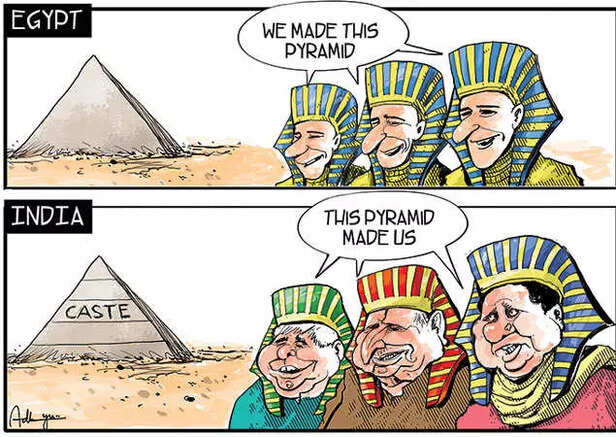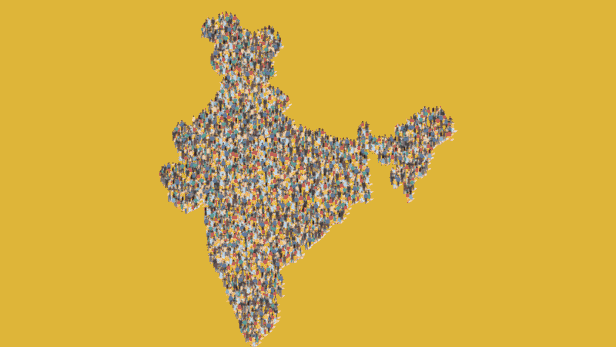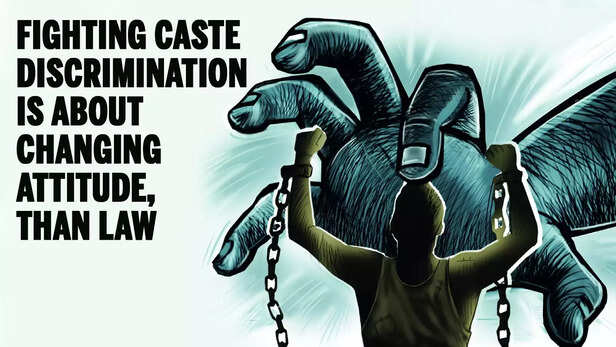Beyond the Surface: Does Caste Discrimination Still Shape Our Lives?
Nidhi | Jan 17, 2025, 23:16 IST
( Image credit : Timeslife )
Caste discrimination remains a persistent reality in modern India, influencing access to education, employment, and social equity. This article examines the necessity of caste-based reservations in addressing systemic inequities and the arguments against them, including the perception of meritocracy and calls for economic-based criteria. By exploring historical context, constitutional principles, and current disparities, it provides a balanced perspective on one of India’s most divisive issues.
The debate over caste-based reservations in India is both complex and deeply rooted in the nation's socio-cultural fabric. While some view reservations as essential for rectifying historical injustices, others argue that they undermine meritocracy in a society striving for equality. This article aims to provide a balanced perspective on the necessity of reservations, the arguments against them, and the subtle yet persistent ways caste discrimination continues to influence Indian society.

The caste system, a millennia-old social hierarchy, has systematically marginalized certain communities, notably Dalits and Adivasis. Despite legal safeguards, these groups continue to face discrimination. For instance, studies have shown that Dalit and tribal women are more likely to face social discrimination, highlighting the intersectionality of caste and gender.
India's Constitution, through Articles 15 and 16, prohibits discrimination based on caste and permits affirmative action for socially and educationally backward classes. Dr. B.R. Ambedkar, the principal architect of the Constitution, emphasized that true democracy cannot exist without social and economic equality. Reservations were envisioned as a means to achieve this substantive equality, addressing entrenched disparities.
Despite economic growth, disparities persist. Data from the Unified District Information System for Education (UDISE) 2021-22 indicates that while overall enrollment has increased, dropout rates remain higher among Scheduled Castes (SC) and Scheduled Tribes (ST). This underscores the need for targeted interventions to ensure equitable access to education.
<br>
 Critics argue that reservations compromise merit by prioritizing caste over qualifications. However, this perspective often overlooks systemic barriers that have historically limited access to resources for marginalized communities. Sociologist Pierre Bourdieu's concept of "cultural capital" explains how societal advantages are inherited, suggesting that meritocracy can perpetuate existing inequalities if not contextualized within broader social structures.
Critics argue that reservations compromise merit by prioritizing caste over qualifications. However, this perspective often overlooks systemic barriers that have historically limited access to resources for marginalized communities. Sociologist Pierre Bourdieu's concept of "cultural capital" explains how societal advantages are inherited, suggesting that meritocracy can perpetuate existing inequalities if not contextualized within broader social structures.
Some advocate for economic-based reservations, asserting that poverty, not caste, should be the determinant for affirmative action. While economic disadvantage is significant, it does not capture the social ostracism and discrimination uniquely tied to caste identity. Studies have shown that even economically better-off Dalits continue to face social exclusion, indicating that economic criteria alone are insufficient.
Opponents view reservations as contradictory to the principle of equality, arguing that they entrench caste identities. However, philosopher John Rawls' theory of justice supports affirmative action as a means to achieve fairness, ensuring that opportunities are accessible to those historically disadvantaged. This approach aligns with the pursuit of substantive, rather than merely formal, equality.

Despite legal prohibitions, caste-based biases manifest in various sectors:

To reconcile differing perspectives and promote an equitable society:
Caste discrimination, though less overt, continues to influence various aspects of life in India. Reservations remain a vital tool in addressing historical and systemic inequities. However, achieving true equality requires a multifaceted approach that includes policy interventions, societal awareness, and a commitment to dismantling deep-seated prejudices. As Dr. B.R. Ambedkar cautioned, "We must remove the contradiction at the heart of our democracy. If we continue to deny equality in social and economic life, we will put our political democracy in peril."
The journey toward an egalitarian society is ongoing, demanding both introspection and proactive efforts to ensure that the shadows of caste discrimination no longer darken India's path to progress.
The Enduring Need for Reservations

Caste System in India
( Image credit : Timeslife )
1. Historical Context and Persistent Discrimination
2. Constitutional Mandate for Social Justice
3. Addressing Systemic Inequities
<br>
Arguments Against Reservations

Casteism
( Image credit : Timeslife )
1. The Meritocracy Debate
2. Economic vs. Caste-Based Criteria
3. Perceived Contradiction to Equality
The Subtle Persistence of Caste Discrimination

Caste System in India
( Image credit : Timeslife )
Despite legal prohibitions, caste-based biases manifest in various sectors:
- Education: Enrollment data from UDISE 2021-22 shows improvements; however, disparities remain. For example, the Gross Enrollment Ratio (GER) for SC students at the primary level was 113.1%, while that for ST students was 106.5%, indicating ongoing challenges in educational attainment.
- Employment: Representation of marginalized communities in elite institutions remains low. Data for PhD courses in 2020 at five high-ranked Indian Institutes of Technology (IITs) show an average of 10% representation for Dalits and 2% for Adivasis, highlighting underrepresentation in higher education.
Navigating the Path Forward

Caste Discrimination
( Image credit : Timeslife )
To reconcile differing perspectives and promote an equitable society:
- Integrate Economic and Social Criteria: A nuanced approach that considers both economic status and caste can address multifaceted disadvantages.
- Enhance Public Services: Investing in quality education and healthcare can uplift all communities, reducing reliance on reservations over time.
- Regular Policy Review: Periodic assessments of reservation policies can ensure they adapt to evolving societal needs and effectively target those most in need.
The journey toward an egalitarian society is ongoing, demanding both introspection and proactive efforts to ensure that the shadows of caste discrimination no longer darken India's path to progress.
